By Leyla Acaroglu, originally published here
Last week, on Wednesday, April 22, it was the 50th celebration of Earth Day, a single day marked in the 365/6 days in a human-described calendar year that is dedicated to remembering or celebrating that we all need the Earth to survive. In my opinion, that should be inverted, and every day should be Earth Day, given we all live here, on the only known life-sustaining planet in the universe — yet we have, in the last 50 years, managed to make a complete mess of things.
In 1968, astronauts headed toward the moon snapped a photo of the Earth from space, and this was beamed back to the millions of humans watching the Apollo 8 mission. For the first time in the history of humanity, we saw our home in all its fragile beauty from space, rising above the infinite black of the universe, and it changed the way the world saw our home, planet Earth. The image, etched into the psyche of all who have come since, is called Earthrise, and it helped spur on the burgeoning environmental movement. Maj. Gen. William A. Anders, the astronaut who took the photo, said that it changed the world: "We came all this way to explore the Moon, and the most important thing is that we discovered the Earth."
Earthrise Photo: NASA taken by Apollo 8 crewmember Bill Anders on December 24, 1968, at mission time 075:49:07
In the preceding years, the EPA was set up and the Clean Air Act passed in the USA. There were huge protests and some changes, there were clean ups and crack downs. But there was never a change in the way we do things, really.
Now we have high definition, full color detailed satellite photos of every inch of our Earth — we can zoom in to see ice caps melting and rainforests on fire (remember when in 2019 it was a thing in Malaysia and Brazil to intentionally burn down rainforests to create farmland? Can you recall the devastating fires that ravaged Australia?). We know what we have, what we had, what we are losing...but do we know the cost? Back in the 1970s, “Americans had become increasingly aware that the same industrialization that had made the country wealthy was having an impact on the environment and their own health,” according to a reflection published in Scientific America this week. The article goes on to show all the exponentially growing graphs of ecological decay that have occurred since that day 50 years ago, when hundreds of thousands of Americans marched for planet protection, many of them now probably reaping the benefits of the industries that have gone on to pollute indiscriminately. This, of course, is not new to Earth System Scientists, as it was in the early 2000s when they first published these profound “Great Acceleration” graphs. They show the recurring hockey stick curves skyrocketing up into uncharted territories across many human socio-cultural changes and natural system impacts, all starting in 1950.
The Great Acceleration Graphs, 2004, International Geosphere-Biosphere Programme, Image Source
“It is difficult to overestimate the scale and speed of change. In a single lifetime humanity has become a planetary-scale geological force,” — Professor Will Steffen, International Geosphere-Biosphere Programme (IGBP) and the Stockholm Resilience Centre.
The last 70 years have seen some incredible changes to our societies, culture, technology and all the planetary systems. We now live in a new geological epoch called the Anthropocene, where every centimeter of this planet has been changed by humans in some way. For the last 10,000 years, we have lived in the climate-stable Holocene period, allowing our species to grow ourselves, crops and our seemingly endless desire for natural systems destruction. Since the 1950s, however, we have entered into the Anthropoecene’s man-made era of ecological decay, and we are suffering the costs on many fronts.
Nature is magic, yet we do unimaginable things to it for our own collective benefits, irrespective of all the other systems and species that contribute to the life-giving interplay that makes life on Earth possible.
The tragic trade-off of our expansion and domination over the globe is all too obvious. Take a peek at any one of the exponentially-growing environmental concerns: ocean plastic waste, air pollution, deforestation, the Sixth Great Extinction, climate change. As we sit stuck in our homes, lamenting and stressing about the killer virus sweeping through our communities and blaming it on bats, we forget that we made all of this mess. We destroyed the habitats, we created the market for live animals, we facilitated the air pollution and environmental conditions that are starting to be correlated with high death rates of COVID-19. We lit the match that started the fire, and we are responsible for finding the means to extinguish it without destroying the place in the process.
We don’t have direct evidence that climate change is influencing the spread of COVID-19, but we do know that climate change alters how we relate to other species on Earth and that matters to our health and our risk for infections. As the planet heats up, animals big and small, on land and in the sea, are headed to the poles to get out of the heat. That means animals are coming into contact with other animals they normally wouldn’t, and that creates an opportunity for pathogens to get into new hosts. — Dr. Aaron Bernstein, interim director of Harvard University’s Center for Climate, Health, and the Global Environment at the Harvard T.H. Chan School of Public Health. Source
Earth Day reminds some people — but let's be honest, not that many, and probably not the ones who are at the forefront of the damage to begin with — that we have a debt to the damage we have done. But in the last 50 years of “celebrating” it, we have done far more destruction than protection. Locking nature up in parks, reserves and protected spaces does nothing to realign our species with the harsh and critical reality that without nature, we are nothing — without the complex interplay between all the systems around us, we have no food, no fresh water, no atmosphere, no oxygen, no culture, no stable operating environment for our species to inhabit. We are nature, we are the systems that we destroy, and as long as we only prioritize a single day to blink at this reality, we will continue to allow the decay of the most beautiful planet in the universe.
As long as you live here, remember: every day is Earth Day.
-------
Believe it or not, individual actions do have impacts. I have done several projects and initiatives that help us all take action, own the agency that we have in this system and make positive change:
Anatomy of Action, a sustainable lifestyle initiative we collaborated with the UN to create
The Circular Classroom, free educational toolkit on sustainability










